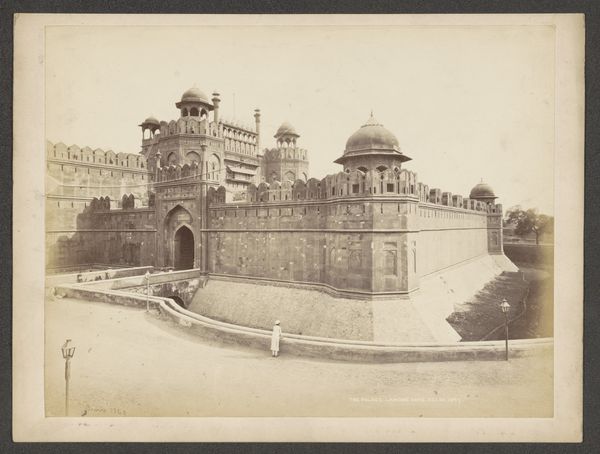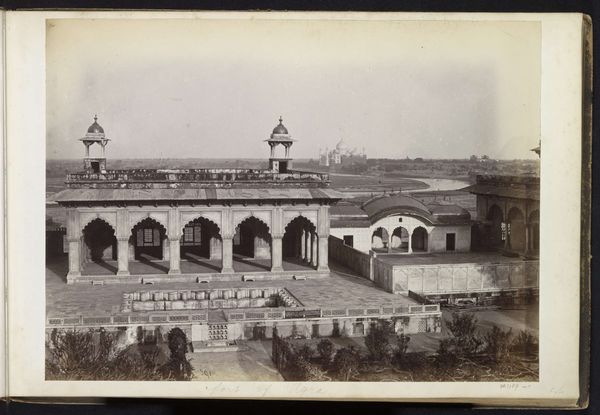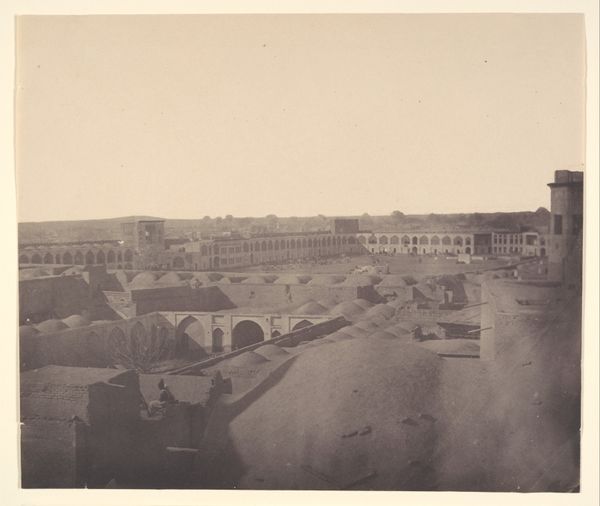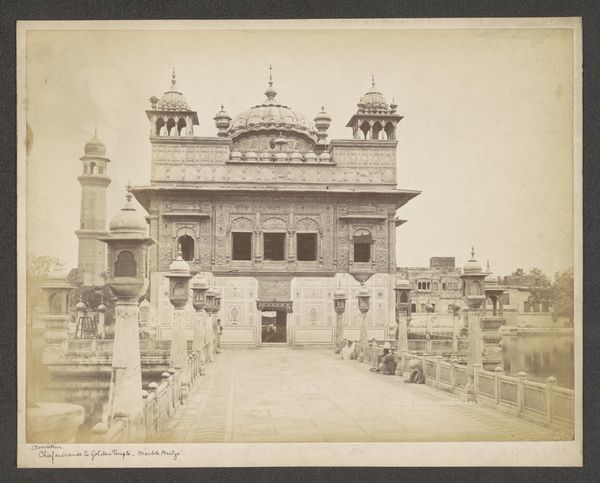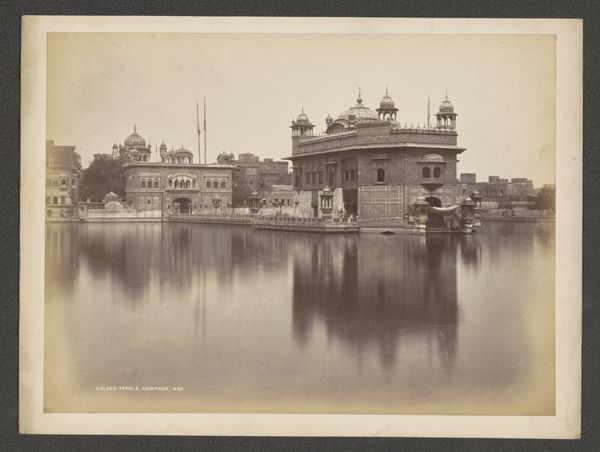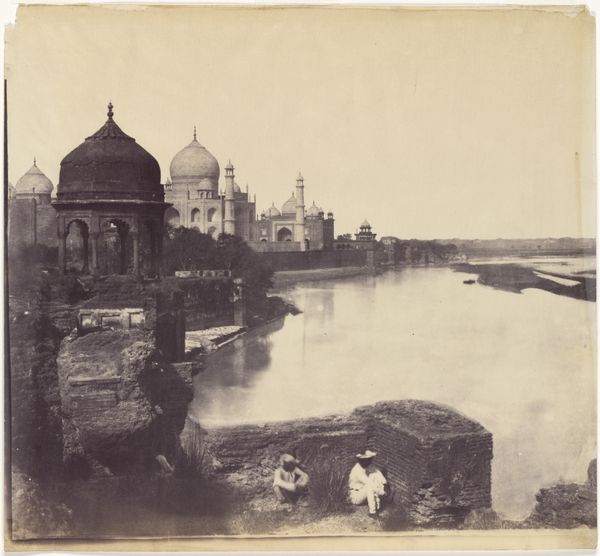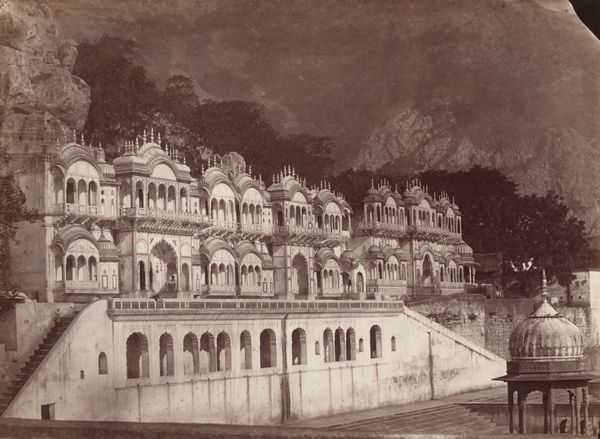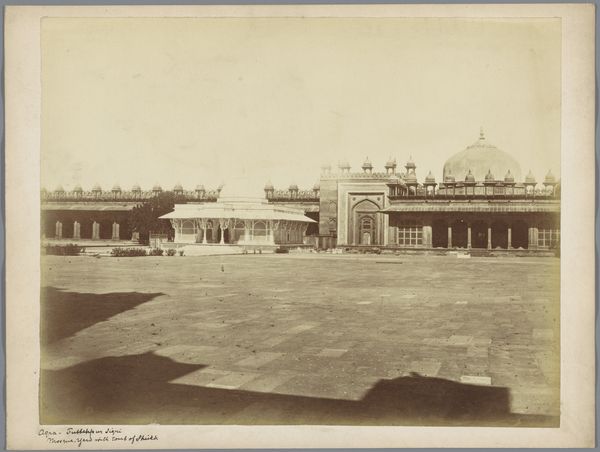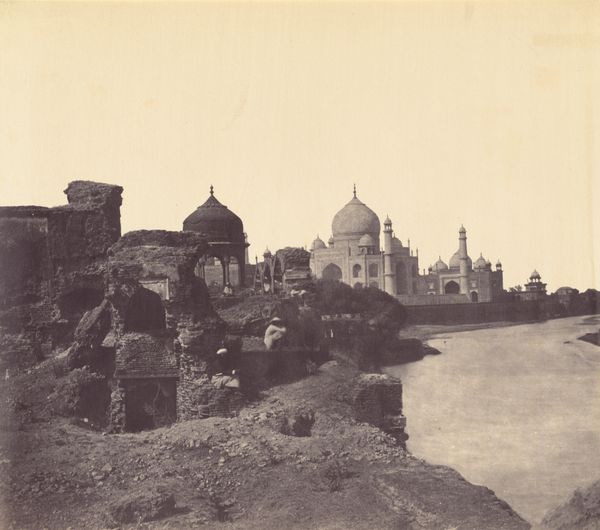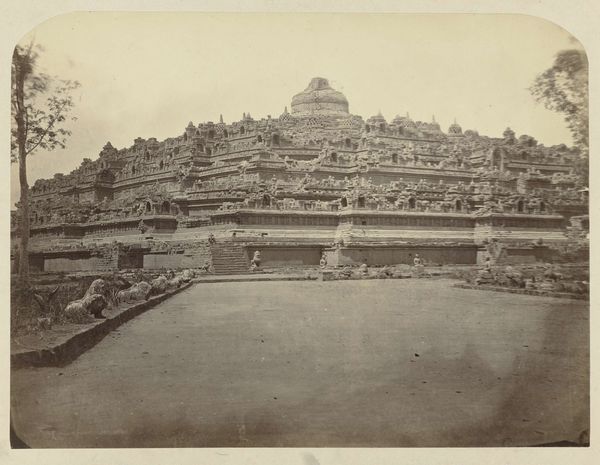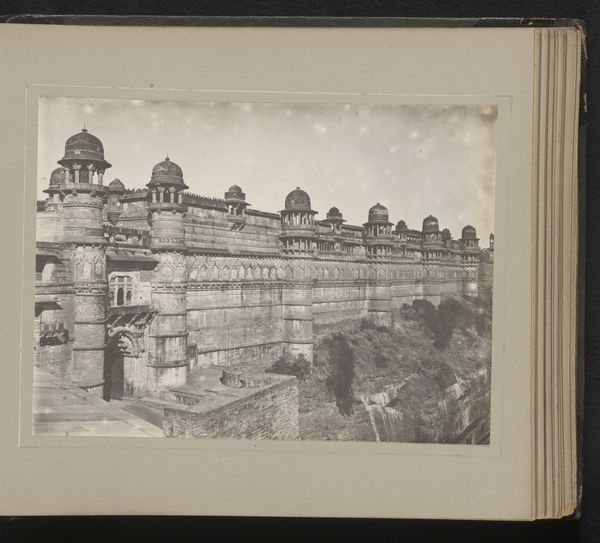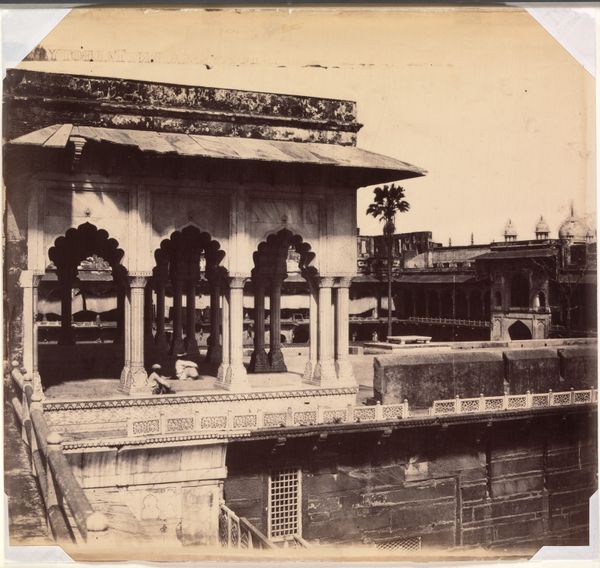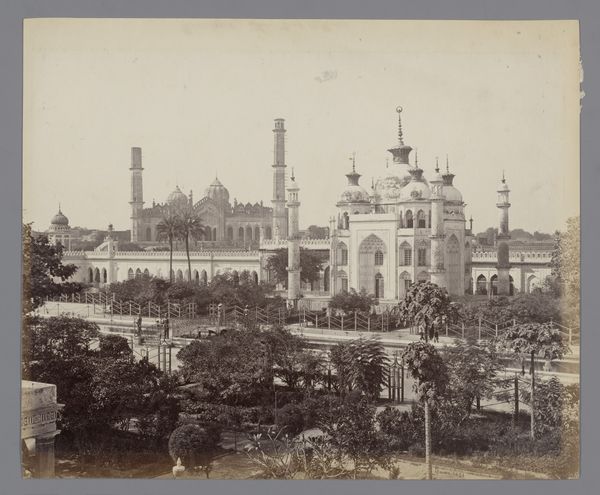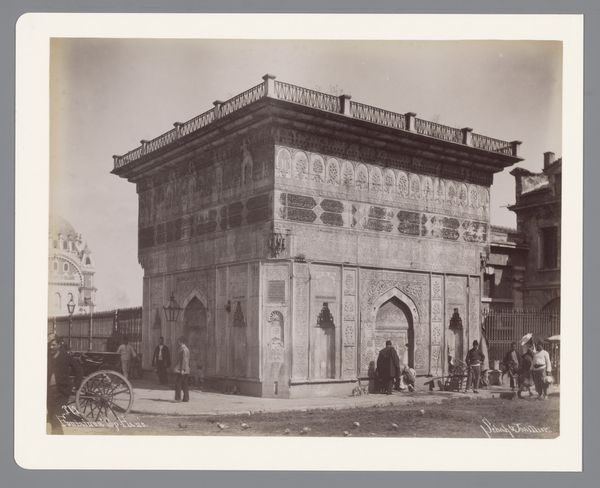
daguerreotype, photography, architecture
#
landscape
#
daguerreotype
#
photography
#
historical photography
#
arch
#
horse
#
19th century
#
cityscape
#
islamic-art
#
architecture
Dimensions: Image: 38.6 x 44.5 cm (15 3/16 x 17 1/2 in.)
Copyright: Public Domain
Curator: Oh, wow. It feels like stepping back in time just looking at this. All those stone walls – impressive! Editor: Indeed. We’re looking at "Fort Agra, The Delhi Gate," a daguerreotype from the 1850s by John Murray. It's part of the Metropolitan Museum of Art's collection here in New York. Observe how the geometric precision contrasts with the warmth of the sepia tones, evoking a distant yet immediate past. Curator: Sepia is right—the photo's color is hitting the feelings button. You see that lone horse-drawn carriage near the gate? Gives you the size and scale—it’s massive. Editor: Precisely. Murray’s choice to frame the subject this way isn't accidental; it speaks to a larger imperial narrative. Consider how the human presence diminishes against the architectural immensity, symbolic perhaps, of the Empire itself. Curator: Or, maybe Murray thought it looked kinda cool? Either way, you get a feeling of being grounded while also looking out across history or…something! Does this picture fit some kind of photographic style? Editor: As a 19th-century photograph, it falls under the broad category of landscape photography. Murray utilized photography as a medium to meticulously document the detailed craftsmanship and imposing structure, therefore immortalizing and cataloging imperial territories for the Western gaze. Semiotically speaking, the light… Curator: Light, light, yes! And shadow! See how the walls look solid because of where the sun’s hitting? That texture is killer. Even though it is one tone you get lost staring. Editor: Indeed, that interplay serves not only to illuminate but also to articulate the fort's design and historical meaning. Curator: Looking at this piece of photography history just makes me imagine all the horse and carriages from that time coming through that huge gateway and then where did they go from there, and what where they seeing?! That gate becomes almost a sort of lens on how you look at the past. Editor: A provocative proposition, one I believe enriches how we engage with this potent historical document and prompts the realization of visual narratives connecting time and consciousness. Curator: Exactly! So... what you think? Wanna go get tea and hash this piece of history some more? Editor: It would be my distinguished pleasure to elaborate further over tea!
Comments
No comments
Be the first to comment and join the conversation on the ultimate creative platform.
